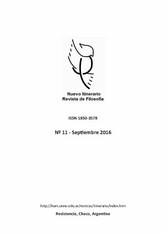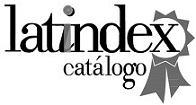Paul Ricoeur as a legal philosopher: the subject of rights and responsibility as a capable human being
DOI:
https://doi.org/10.30972/nvt.2017586Keywords:
Legal subject, responsibility, vulnerability, autonomy, recognitionAbstract
In the last phase of Ricoeur's work, the legal sphere becomes a central point for the reflection on the identity and capacities of the self, in which the subject fully realises the capacities as a subject of law understood as a responsible subject as a subject capable of reflexive imputation, thus acquiring an ethical and anthropological thickness outside the legal categories of subjectivity and imputability. The sí as a subject of law unfolds its full theoretical potential in relation to a prospectively oriented idea of responsibility, i.e. in contrast to the "static" perspective of the attribution of rights and duties. The question of the identity of the subject of rights is approached by Ricoeur from the perspective of the concrete conditions of its realisation in relation to the other, understood in its double interpersonal and institutional form (in the double figure of the "you" and the "each other"). But it is only by confronting real powers and concrete rights that the self attains the status of "true subject of law", Ricoeur claims, so that autonomy, from being a theoretical-dogmatic assumption at the basis of the theory of juridical subjectivity, is articulated within the question of ipseity and the subject's capacity for self-designation as responsible, becoming also a task whose realisation is uncertain, thus characterising the subject of law as eminently vulnerable. But the vulnerability we are talking about here is linked not only to the fragility of the human body and to physical asymmetries: it is the vulnerability to méconnaissance that marks the interpersonal constitution of the subject of law, and in this sense it is not necessarily antithetical to autonomy, as a mark of the interpersonal character within which relations with the other are acquired and maintained. The capacities of the self have to be inscribed in social contexts that structure experience, i.e. the legal and the political, in order for the self to access the status of citizen, not only from the point of view of its recognition by the system, but also, and crucially, from the point of view of its own understanding and that of other citizens, since equality and reciprocity in rights are only one part, albeit a relevant part, of a wider process of recognition that goes beyond the recognition of equal status for subjects by the legal system. In other words, the question of the autonomy and responsibility of the subject of law is put in relation to concrete individuals, whose identity cannot be confined to a legal form alone.
References
Anderson, J. (2014). Autonomy and vulnerability entwined. In C. Mackenzie, W. Rogers, & S. Dodds (Eds.), Vulnerability: New Essays in Ethics and Feminist Philosophy (p. 134). Oup Usa.
Anderson, J. H., & Honneth, A. (2005). Autonomy, vulnerability, recognition, and justice. In J. Christman & J. Anderson (Eds.), Autonomy and the Challenges to Liberalism: New Essays (pp. 127–149). Cambridge University Press. https://doi.org/10.1017/CBO9780511610325.008
Cane, P. (2002). Responsibility in Law and Morality. Hart Publishing.
Cruz, M. (1999). Hacerse cargo: sobre responsabilidad e identidad personal. Paidos.
Cruz, M. (1998). Verso una responsabilità innocente. Filosofia politica, 12(2), 209-230.
Druet, F.-X., & Ganty, E. (Eds.). (1999). Rendre justice au droit: En lisant Le Juste de Paul Ricoeur. (Actes d’un séminaire organisé par l’Espace philosophique des Facultés universitaires Notre-Dame de la Paix, Namur). Presses universitaires de Namur.
Garzón Valdés, E. (1996). El enunciado de responsabilidad. Doxa. Cuadernos de Filosofía del Derecho, 19, 259. Se encuentra también en M. Cruz-R.R. Aramayo (ed.), El reparto de la acción. Ensayos en torno a la responsabilidad. Madrid 1999.
Honneth, A. (1996). The struggle for recognition: The moral grammar of social conflicts. MIT Press.
Jonas, H. (1979). Das Prinzip Verantwortung. Versuch einer Ethik für die technologische Zivilisation, Suhrkamp. Traducción española (1995) El principio de responsabilidad. Ensayo de una ética para la revolución tecnológica. Herder.
Kelsen, H. (1960) Reine Rechtslehre. Verlag Franz Deuticke.
Leeuw, M. D. & Taylor, G. H. (Eds.). (2022). Reading Ricoeur Through Law. Rowman & Littlefield.
Ricoeur, P. (1990). Soi-même comme un autre. Seuil.
Ricoeur, P. (1995). Le juste. Seuil.
Ricoeur, P. (2001). Le Juste 2. Esprit.
Ricoeur, P. (2006). Caminos del reconocimiento. Tres estudios. Trad.esp. de Agustín Neira. FCE [ed. or. Parcours de la reconnaissance. Stock, 2004].
Villey, M. (1977). Esquisse historique sur le mot responsable. Archives de philosophie du droit, 22, La responsabilité, 45-58.
Zaccaria, G. (2003). Sulla filosofia del diritto dell’ "ultimo" Ricoeur. In La filosofia del diritto dei giuristi (Vol. 2, pp. 135–145). Gedit Edizioni.
Zaccaria, G. (2007). La giurisprudenza come fonte di diritto: Un’evoluzione storica e teorica. Editoriale scientifica.
Published
Versions
- 2024-09-18 (2)
- 2024-06-28 (1)
How to Cite
Issue
Section
License

This work is licensed under a Creative Commons Attribution-NonCommercial 4.0 International License.
Les autores ceden a Nuevo Itinerario los derechos de publicidad de sus trabajos, toda vez que hayan sido admitidos como parte de alguno de sus números. Ello no obstante, les autores retienen los derechos de propiedad intelectual y responsabilidad ética así como la posibilidad de dar difusión propia por los medios que consideren.












51.jpg)

